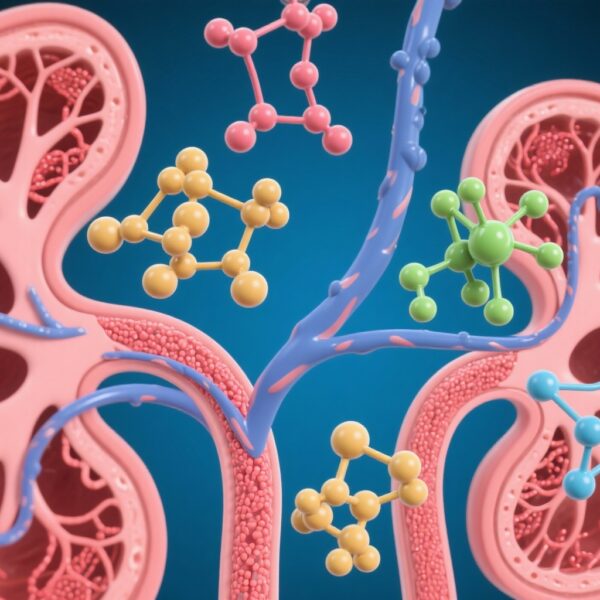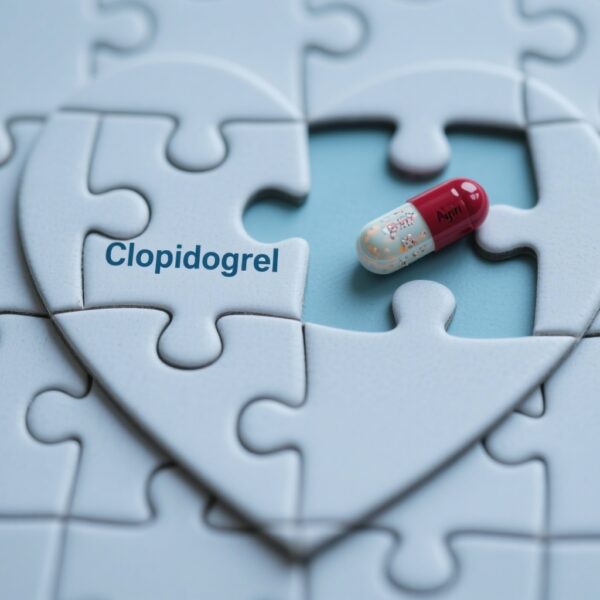Highlight
- The MELD-ATG trial is the first adaptive, dose-ranging, placebo-controlled study to evaluate antithymocyte globulin (ATG) in recent-onset type 1 diabetes among youth aged 5-25 years.
- Both 2.5 mg/kg and 0.5 mg/kg doses of ATG significantly preserved beta-cell function at 12 months compared to placebo, measured by stimulated C-peptide levels.
- Lower doses of ATG were associated with fewer adverse immune reactions such as serum sickness and cytokine release syndrome, supporting a safer, effective minimal dose.
- Findings suggest ATG as a promising repurposed immunomodulatory agent with disease-modifying potential in new-onset type 1 diabetes.
Background
Type 1 diabetes mellitus (T1D) is a chronic autoimmune condition characterized by T cell–mediated destruction of pancreatic beta cells, leading to lifelong insulin dependency. Despite advances in insulin therapy, disease modification to preserve residual beta-cell function remains an unmet clinical need, particularly in newly diagnosed patients. Residual endogenous insulin production correlates with improved glycemic control and fewer complications; hence, immunotherapies aimed at halting beta-cell destruction have garnered significant research interest.
Antithymocyte globulin (ATG) is a polyclonal antibody preparation targeting human T cells, used predominantly in transplantation and some autoimmune diseases. Its immunomodulatory properties make ATG a candidate for beta-cell preservation in T1D. However, prior trials have been limited by high-dose adverse effects and inconsistent efficacy. Adaptive trial designs that allow dynamic dose adjustments could efficiently identify minimal effective doses that balance efficacy and safety.
Study Design
The MELD-ATG trial was a robust, phase 2, randomized, double-blind, placebo-controlled, multicenter study conducted across 14 accredited centers in eight European countries. This trial enrolled 117 participants aged 5 to 25 years, diagnosed with stage 3 clinical T1D within 3 to 9 weeks prior to treatment initiation, with preserved C-peptide >0.2 nmol/L and at least one diabetes-associated autoantibody.
Participants were assigned across seven sequential cohorts exploring five dose groups: placebo, 0.1, 0.5, 1.5, and 2.5 mg/kg ATG. Randomization ratios varied per cohort, maintaining blinding for participants and investigators, with only pharmacists privy to allocation. Treatment involved intravenous ATG infusion over two consecutive days. The adaptive design enabled dose adjustments based on accumulating efficacy and safety data by an independent dose-determining committee.
The primary endpoint was the area under the curve (AUC) of stimulated C-peptide during a 2-hour mixed meal tolerance test at 12 months post-treatment, logarithmically transformed as ln(AUC C-peptide + 1). This biomarker reflects endogenous beta-cell insulin secretory capacity. Safety analyses included monitoring adverse events and immune-related complications.
Key Findings
Between November 2020 and December 2023, 117 participants were randomized: 31 received placebo, 6 received 0.1 mg/kg ATG, 35 received 0.5 mg/kg ATG, 12 received 1.5 mg/kg ATG, and 33 received 2.5 mg/kg ATG. The 0.1 mg/kg and 1.5 mg/kg doses were discontinued during the trial due to futility or safety concerns.
At 12 months, the mean ln(AUC C-peptide +1) was 0.411 nmol/L per minute (SD 0.032) in the placebo group versus 0.535 nmol/L per minute (SD 0.032) in the 2.5 mg/kg ATG group, yielding a statistically significant difference of 0.124 (95% CI 0.043-0.205; p=0.0028). The 0.5 mg/kg ATG group also showed significant beta-cell preservation with a mean of 0.513 nmol/L per minute (SD 0.032) and adjusted difference from placebo of 0.102 (95% CI 0.021-0.183; p=0.014).
This indicates both 2.5 mg/kg and 0.5 mg/kg doses effectively reduce beta-cell functional loss, with lower-dose ATG offering potential for better tolerability.
Regarding safety, immune-related adverse events were dose-dependent. Cytokine release syndrome occurred in 33% of the 2.5 mg/kg group, 24% in the 0.5 mg/kg group, and none in the placebo group. Serum sickness was notably common at 82% in the 2.5 mg/kg group, compared to 32% in the 0.5 mg/kg group, without incidence in placebo. Importantly, no deaths related to adverse events were reported. These findings suggest that the 0.5 mg/kg dose provides a clinically meaningful efficacy at substantially reduced immunotoxicity.
Expert Commentary
The MELD-ATG trial advances the field by demonstrating that low-dose ATG, administered soon after clinical diagnosis, can preserve beta-cell function in youth with new-onset T1D. This supports the notion that immune modulation targeting T cells can alter the disease course. Although previous studies with high-dose ATG raised concerns about tolerability, this adaptive dose-ranging approach reveals a narrower therapeutic window that retains efficacy with fewer serious adverse events.
Potential biological mechanisms include partial depletion or modulation of autoreactive T cells, reduction of inflammatory cytokines, and fostering of regulatory immune profiles that protect beta cells. Importantly, the trial’s diverse age range (children to young adults) and international multicenter design enhance generalizability.
Limitations include the relatively short follow-up of 12 months; longer studies are needed to assess durability and impact on long-term clinical outcomes such as insulin requirements or complications. Additionally, subgroup analyses by age or immunophenotype may further refine patient selection.
Conclusion
The MELD-ATG trial provides compelling evidence that low and intermediate doses of ATG can preserve beta-cell function safely in recent-onset stage 3 type 1 diabetes among 5-to-25-year-olds. This positions ATG as a viable, repurposed immunotherapy with disease-modifying potential. The adaptive design accelerates therapeutic development by efficiently identifying minimum effective dosing.
Future directions include confirmatory phase 3 trials, exploration of combination therapies with other immune or metabolic agents, and biomarker-driven personalization to maximize benefit while minimizing risks. Clinically, these findings pave the way towards altering the natural history of type 1 diabetes from onset, with hope of improved quality of life and reduced long-term complications for affected youth.
Funding and Trial Registration
This study was funded by the European Union’s Innovative Medicines Initiative 2 Joint Undertaking (INNODIA). The trial is registered with ClinicalTrials.gov under identifier NCT04509791.
References
Mathieu C, Wych J, Hendriks AEJ, et al. Minimum effective low dose of antithymocyte globulin in people aged 5-25 years with recent-onset stage 3 type 1 diabetes (MELD-ATG): a phase 2, multicentre, double-blind, randomised, placebo-controlled, adaptive dose-ranging trial. Lancet. 2025 Sep 27;406(10510):1375-1388. doi:10.1016/S0140-6736(25)01674-5. PMID:40976248.


